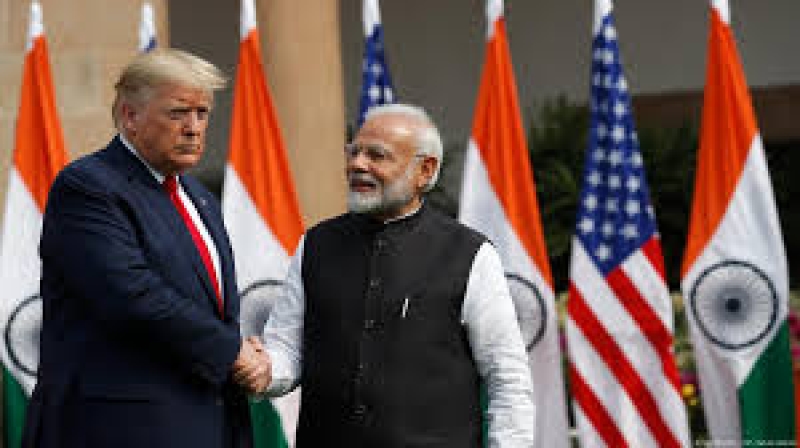- Security Council Divided on United States' Venezuela Action |
- Over 1.53m voters register for postal balloting: Shafiqul Alam |
- Bangladesh Bank to liquidate 9 NBFIs in financial sector reforms |
- Govt Moves to Clear Tk20,000cr Dues to Avoid Summer Outages |
- Maduro Pleads Not Guilty in US Court, Claims Presidency |
Trump and Modi Discuss Trade and White House Visit

US President Donald Trump and Indian Prime Minister Narendra Modi held a phone call on Monday, where they discussed trade relations and the possibility of a future state visit to Washington.
The White House stated that Trump underscored the importance of "moving toward a fair bilateral trading relationship" and emphasized the need for India to continue purchasing American-made security equipment.
The two leaders also discussed plans for Modi's upcoming visit to the White House, which would further strengthen ties between the two nations.
“We are committed to a mutually beneficial and trusted partnership,” Modi wrote on social media. “We will work together for the welfare of our people and towards global peace, prosperity, and security.”
Close Ties Between Modi and Trump
Modi has maintained a close relationship with Trump, being one of the first world leaders to congratulate him on his projected victory in the 2020 election and his subsequent inauguration, referring to him as a "dear friend." Throughout Trump's first term, Modi consistently highlighted his commitment to working with the US leader for the betterment of both countries.
The partnership between the two leaders was on full display during the 2019 "Howdy Modi" event in Houston, where Trump addressed a crowd of around 50,000 Indian-Americans, marking a pivotal moment in US-India relations. This event was followed by the "Namaste Trump" rally in Gujarat, India, in February 2020, where Trump reiterated his intent to deepen US-India ties.
Shared Interests Between the US and India
US-India relations have strengthened over the years, with both nations aligned on shared interests, particularly in countering China's influence in the Indo-Pacific region. This mutual goal has bolstered security ties, with India purchasing billions of dollars' worth of US military equipment under the Biden administration.
However, trade relations between the two countries remain a more complex issue, especially in light of Trump's past comments on tariffs. Trump has previously referred to India as a "tariff king" and suggested implementing a reciprocal tax system if re-elected, a move that could further complicate trade dynamics between the two countries.
As foreign policy expert C Raja Mohan noted, "The second Trump presidency would bring a complicated scenario for India, marked by risks related to trade and immigration."
Bilateral Trade and Economic Impact
The annual bilateral trade between the US and India exceeds $190 billion, making the US India's largest export market for goods and services. However, any significant tariffs imposed by Trump on Indian exports could have adverse effects on India's domestic businesses, potentially impacting the broader trade relationship.
As discussions continue, the future of US-India trade relations will be shaped by both countries' strategic priorities and the potential for continued collaboration in areas like security, defense, and economic growth.

